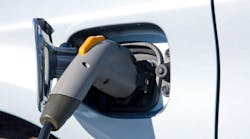Pro: Hydrogen, electricity are the future
by Trevor Milton, CEO and founder, Nikola Motor Co.
In December, Nikola motor unveiled the world’s first hydrogen electric commercial truck to over 600 experts at our Salt Lake City headquarters. To date, more than 200,000 people have watched the reveal video at nikolamotor.com and 1.5 billion people read 700-plus stories in the mainstream media about this breakthrough product.
Why the excitement?
America is looking for a change. Zero tailpipe emissions from commercial trucks is incredibly important. America is tired of loud, dirty and smelly diesel trucks polluting our environment.
In time, every truck in the world will go electric. Electric motors are 90-plus percent efficient, and diesels won’t be able to compete. The big challenge for electric heavy trucks is, of course, range, and that’s why Nikola has installed a state-of-the-art hydrogen fuel cell range extender.
The Nikola One utilizes a fully electric drivetrain powered by high-density lithium batteries. Energy will be supplied by a hydrogen fuel cell giving the Nikola One a range of 800 to 1,200 mi. while delivering over 1,000 hp. and 2,000 lbs.-ft. of torque—nearly double that of any semi-truck on the road. The Nikola truck eliminates the need to stop and charge. Never has a production model Class 8 truck achieved best-in-class fuel efficiency while also dramatically improving performance over its diesel competition, all with zero tailpipe emissions.
This performance surpasses all government mandates in place for the next 10 years, including the Environmental Protection Agency’s recently announced stringent Phase 2 greenhouse gas standards.
Our detractors say there is no infrastructure for a hydrogen economy. OEMs haven’t succeeded in this space, they say.
Our answer is, we are the chicken and the egg! By being vertically integrated, we create our own hydrogen and will have customers lined up to use the hydrogen before the station opens. With over 8,000 trucks on order, Nikola has a unique opportunity to eliminate driver range anxiety by constructing 364 hydrogen stations nationwide.
Our desire to be 100% emissions-free in the U.S. and Canada is a critical piece of our long-term engineering and environmental efforts, not just in vehicle energy consumption but also in how energy is produced. From well to wheel, we eliminate almost all emissions from manufacturing, distribution, dispensing and consumption.
Finally, we’ve built the hydrogen fuel expense into our lease program so drivers don’t have to worry about the fluctuation of fuel prices. No diesel truck manufacturer can guarantee fuel prices like Nikola Motor can. Long gone are the days of dirty and noisy diesel engines. Long gone are the days of emission equipment issues, unstable fuel prices, lower driver pay, and driver turnover rates.
As diesel fleets are retired, America’s operators will be able to turn to hydrogen and electricity to power their trucks. Diesel engines will always have a place in America, but they will suffer a slow painful death, similar to what Kodak experienced with its film business with the debut of digital cameras.
On the next page, read the argument against Electric
Con: Clean diesel is hard to beat
by Allen Schaeffer, executive director, Diesel Technology Forum
Trucking is a tough business, for both truckers and those who make the trucks. The demands are many. In addition to federal safety requirements, add compliance with new fuel economy and greenhouse gas emissions regulations that will get progressively tighter in the next 10 years. Also, don’t forget the need for near-zero emissions performance for nearly half a million miles.
You must also meet all the customer demands, including having the highest uptime and reliability, be able to move 80,000 lbs. up mountains at 60 mph, and run 100,000 to 120,000 mi. a year in every type of terrain and weather—all while doing so at the lowest possible cost.
No power source can meet these challenges as reliably and cost-effectively as diesel. This is why diesel today powers 98% of Class 8 commercial trucks—and why it will continue to do so for decades to come.
Performance has never been a question for diesels. The primary question the past 15 years has been whether it could meet new environmental standards, which are the most stringent in the world. Diesel has met that challenge each and every step of the way. Everyone knows the numbers. Since 2000, diesel trucks have reduced particulate matter by 98%, cut NOx emissions by 98%, and reduced diesel fuel’s sulfur content by 97%. It would take more than 60 of today’s clean diesel trucks to equal the emissions from a single truck built before 1990.
According to our 2016 research by The Martec Group, the 4.2 million new clean diesel commercial trucks put in service in the U.S. from 2007 through 2015 have saved nearly 3 billion gallons of diesel fuel. For Class 8 trucks running the newest generation (2010 and newer) engines, the new technology saved truckers $2,400 a year in fuel costs by using 875 fewer gallons of fuel (based on 125,000 mi. traveled).
But new challenges continue to emerge. Other fuel sources say they are even better for the environment. Some say that while they are more expensive up front and have little, if any national fueling infrastructure in place, that they will someday be cheaper for the trucking industry. Yet, after more than a decade of incentives and subsidies of many shapes and sizes, today less than 20,000 natural gas trucks are registered in California compared to 900,000 diesels (IHS Automotive, Dec. 31, 2015).
Many experts are continuing to project overwhelming dominance for the diesel engine. ExxonMobil, for instance, predicts oil will continue to dominate transportation by meeting 95% of transportation energy needs by 2040 “due to widespread availability, economic advantages, and high energy density.”
Diesel is poised to make additional advancements in trucking efficiency, including further advances in combustion efficiency, waste heat recovery, improved efficiency through advanced turbocharging, and fuel injection.
It also provides a unique technology platform suitable for expanded use of lower-carbon renewable fuels, which will be important for reducing GHG emissions while keeping operations at the lowest possible cost.
There’s a likelihood that trucking’s fuel mix diversifies to some degree in the years ahead. Truck makers want to meet the needs of their customers and have options available. But it’s also pretty clear that diesel power will continue as the foundation fuel dominating the trucking industry. After all, no other alternative can provide the power, reliability and efficiency combined with the environmental gains that are the foundation of advanced clean diesel trucks.





